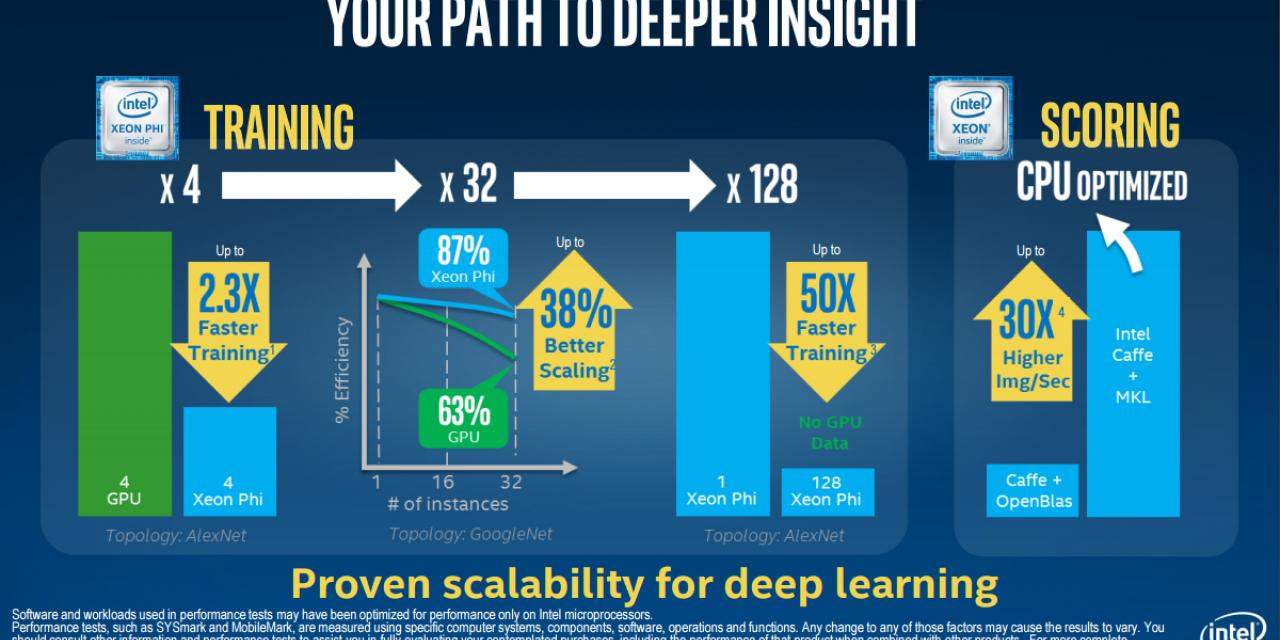
Nvidia has called Intel out for skewing benchmark results in favor of its long overdue Xeon Phi processor.
Deep machine learning and artificial intelligence is a rapidly growing field that relies on large scale computing. Until now, super computers used for neural networks and deep learning utilized graphics cards to perform the intensive computations needed in those fields. Intel is now trying to change that with its Xeon Phi processor which the company claims to provide superior performance.
And this claim is what Nvidia disputes.
Intel recently published a set of slides, claiming that the Xeon Phi is 2.3x faster than Nvidia's GPUs, that is 38% better at scaling and that it can be scaled up to 128 nodes while GPUs cannot.
Nvidia disputed all of Intel's claims. The GPU giant accused its competitor of deliberately comparing their latest-and-greatest CPU to its years-old GPU generation using outdated and optimized version of the benchmark software in order to reach the aforementioned results.
Intel used Caffe AlexNet data that is 18 months old, comparing a system with four Maxwell GPUs to four Xeon Phi servers. With the more recent implementation of Caffe AlexNet, Intel would have discovered that the same system with four Maxwell GPUs delivers 30% faster training time than four Xeon Phi servers, explained Nvidia. "In fact, a system with four Pascal-based NVIDIA TITAN X GPUs trains 90% faster and a single NVIDIA DGX-1 is over 5x faster than four Xeon Phi servers."
Similarly, Nvidia pointed out that Intel compared its system to a 4 years old Nvidia-based system with regard to scalability.
Intel responded to Nvidia's claims with the following statement:
"It is completely understandable that Nvidia is concerned about Intel in this space. Intel routinely publishes performance claims based on publicly available solutions at the time, and we stand by our data."
This is yet another reminder why you should never rely on manufacturer-provided benchmark results. It is no secret that all manufacturers, Nvidia included, would publish only benchmark results that portray their products in the best way possible.








